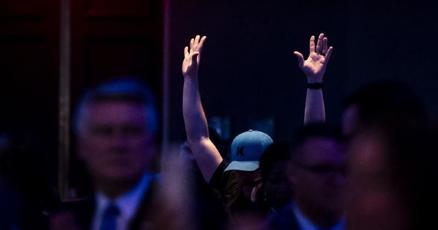Soul Search: Why Americans Are Still Spiritually Adrift in a Secular Age

Every Sunday, I would stand before my Mormon congregation, my voice steady and unwavering, declaring with absolute conviction that everything I believed was unequivocally true. Those moments were more than just routine declarations; they were passionate affirmations of my faith, deeply rooted in years of religious upbringing and personal commitment.
My words would resonate through the chapel, a testament to the certainty that filled my heart. Each proclamation was a reflection of my spiritual journey, a public manifestation of the beliefs that had shaped my entire worldview. I believed, without a hint of doubt, that the teachings I was sharing were sacred and absolute.
Looking back now, I realize how profoundly those moments defined my understanding of truth, community, and personal identity. The confidence with which I spoke was both a product of my environment and a deeply personal expression of my inner convictions.
